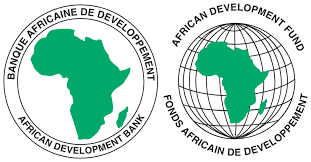AfDB urges Tinubu to fix power for economic growth
By Jeph Ajobaju, Chief Copy Editor
Bola Tinubu has been urged by the African Development Bank (AfDB) to urgently tackle unstable power supply to boost economic growth if he wants to succeed as Nigeria’s 16th President, a mantle he got on Monday after a 30-year quest.
AfDB President Akinwumi Adesina said the country must decisively fix electricity once and for all, being the best way to facilitate faster growth.
Adesina insisted there is no justification for Nigeria not having enough power supply when he delivered the Inaugural Lecture for the New President of Nigeria in Abuja.
He lamented the abnormal has become normal, saying the private sector is hampered by the high cost of power.
“Providing electricity will make Nigerian industries more competitive. And it is not brain surgery,” he stressed, adding Kenya and Egypt with the help of the AfDB have expanded electricity access.
“With the support of the African Development Bank, Kenya, under President Kenyatta, was able to expand electricity access from 32% in 2013 to 75% in 2022. What an incredible achievement within 10 years!
“Today, 86% of Kenya’s economy is powered by renewable energy. And in one project – the Last Mile Connectivity Project – the Bank’s support allowed Kenya to connect over 2.3 million poor households to electricity – that is over 12 million people provided with affordable connection to grid power.
“In 2014, Egypt had electricity deficit of 6,000 megawatts (mw), but by 2022 it had 20,000 megawatts of surplus power generation capacity. Amazing.”
Adesina commended the government of Nigeria on the recent commissioning of several power projects, but stressed there is still much to do.
“Nigeria should invest massively in renewable energy, especially solar.
“The African Development Bank is implementing a $25 billion Desert-to-Power program to provide electricity for 250 million people across the Sahel, including the northern parts of Nigeria.”
Adesina urged the new government to revive the rural areas for inclusive development.
“Nigeria’s rural areas are forgotten and have become zones of economic misery. To revive and transform these rural economies, we must make agriculture their main source of income, a business and a wealth creating sector.”
__________________________________________________________________
Related articles:
AfDB signs deal with IFAD to support 40m African farmers
Poor quality agric export rejection costs Nigeria $700m
Nigerians paying $40m monthly for electricity not supplied
__________________________________________________________________
Agriculture is a business
Adesina, who was once Nigeria’s Agriculture Minister, insisted agriculture is not a development sector, it is a business, per reporting by Vanguard.
“The development of Special Agro-industrial Processing Zones will transform agriculture, add value for agricultural value chains and attract private sector food and agribusinesses into rural areas.
“Special agro-industrial processing zones will help turn rural areas into new zones of economic prosperity and create millions of jobs.”
He disclosed the AfDB, Islamic Development Bank, and the International Fund for Agricultural Development are supporting the implementation of a $518 million special agro-industrial processing zones’ program in seven states and the Federal Capital Territory.
“We are ready to help expand this to every state in the country. We are equally ready to help revamp agricultural lending institutions to help modernise the food and agriculture sector.”
Human capital is best asset
Adesina reiterated the best asset is human capital, not natural resources; therefore, “Nigeria’s best asset is its human capital. We must invest heavily in human capital to build up the skills Nigeria needs to be globally competitive, in a rapidly digitised global economy.
“We must build world class educational institutions, and accelerate skills development in science, technology, engineering, and mathematics, as well as in ICT and computer coding, which will shape the jobs of the future.”
There is an urgent need to unleash the potential of the youth, he pressed.
“Today, over 75 per cent of the population in Nigeria is under the age of 35. This presents a demographic advantage. But it must be turned into an economic advantage. move away from the so-called ‘youth empowerment programs.’”
Adesina urged the new government to move away from ‘youth empowerment programs’ and create youth-based wealth.
“Youths do not need handouts. They need investments. The current banking systems do not and will not lend to the youth.
He warned special funds, while palliative in approach, are not systemic and are also not sustainable.
“What’s needed to unleash the entrepreneurship of the youth in Nigeria are brand new financial ecosystems that understand, value, promote and provide financial instruments and platforms for nurturing business ventures of the youth at scale.”
He disclosed the AfDB and partners including Agence Francaise de Development and the Islamic Development Bank, launched the $618 million I-DICE program to develop digital and creative enterprises.
“They will create six million jobs and add $6.3 billion to Nigeria’s economy.”
According to him, the AfDB is working with central banks and countries to design and support the establishment of Youth Entrepreneurship Investment Banks.
“These will be new financial institutions, run by young, professional, and highly competent experts and bankers, to develop and deploy new financial products and services for businesses and ventures of young people.”







